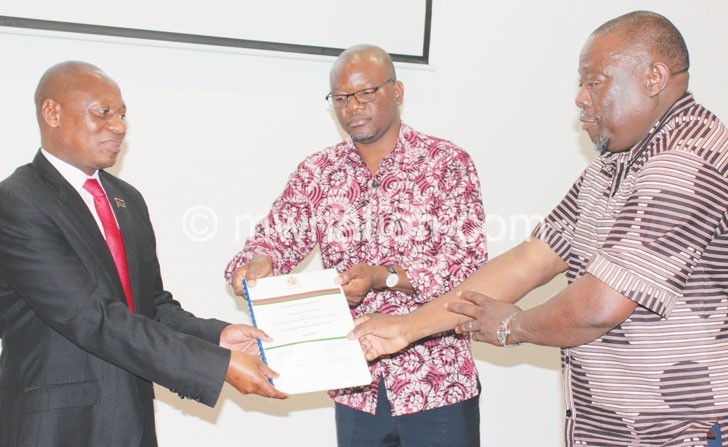ACB study exposes Immigration, Road Traffic
Despite applying various measures to check corruption, an Anti-Corruption Bureau (ACB) integrity survey has revealed that the vice remains high at Immigration and Citizenship Services (ICS) as well as Directorate of Road Traffic and Safety Services (DRTSS).
The survey found that perceptions of the two institutions’ employees and their clients agreed that bribery takes place in exchange of services.

Launching the survey results in Blantyre on Friday, ACB director general Reyneck Matemba said the percentage of people who felt corruption was still high in the two institutions as well as their levels of integrity ranged from 54 to 67 percent.
“The percentages are not encouraging [to the two institutions] but the results should not frustrate you,” he said.
According to Matemba, the results serve to encourage ICS and DRTSS to initiate efforts to prevent corruption and promote citizens’ rights in a transparent manner.
The pilot assessment study, targeting ICS and DRTSS, was designed to measure integrity levels at the two public institutions based on responses of employees and the clientele.
ACB implemented the pilot integrity survey with technical support from National Statistical Office (NSO) and funding from government. Additional funding came from the Department for International Development (DfID) through International Centre for Asset Recovery (Icar).
According to a summary of the results, the study found that 61 percent of DRTSS service providers sensed that officials take bribes while 44.4 percent of users agreed that bribes are paid out.
The study also found that 75.7 percent of service users agreed that a bribe is paid out to officials for a service with 38.2 percent of ICS service providers also agreeing that bribery was demanded for a service to be done.
“It is very alarming that the study has shown that majority of service providers at DRTSS perceive that some officials take bribes,” reads part of the summary of the results dated June 2019.
In terms of actual level of corruption as experienced by both service users and providers, the survey established that both ICS and DRTSS service providers and users accepted to have asked or offered a bribe.
“These bribes were often asked for or offered at the beginning of work or service [70.6 percent for DRTSS providers and 85.7 percent for ICS providers].
“The main reason for paying or asking for a bribe at DRTSS was to facilitate or speed up the processes of the service [100 percent for DRTSS providers and 86.7 percent for users],” reads the report.
However, the study, which has taken nearly two years, revealed that 71 percent of DRTSS service providers and 64 percent of ICS service providers impartial manner.discharge their duties in a fair and
In an interview after launching the results, Matemba said despite the survey outcome he was pleased with the two institutions leadership for putting in place measures to address the issues.
“We believe the two institutions are keen to institute a culture of honesty and ethical behaviour to resist corruption,” he said.
However, the country’s anti-corruption czar said measures alone were not enough.
“As long as people managing those systems are not honest, we will be chasing shadows and the fight against corruption will be a tall order for us… corruption still poses a big challenge to this country,” said Matemba.
DRTSS director Fergus Gondwe said the directorate would work on the highlighted areas in order to curb corruption.
He, however, said corruption issues were behavioural in nature as such it was wrong to generalise it as a reflection of all the directorate’s employees.
“There are few individuals who might be involved in corruption because they don’t want to change their behaviours,” said Gondwe.
On his part, chief immigration officer Masauko Medi said the ICS had put in place several measures, including reduced interaction between the officers and the public, to improve integrity and reduce the corruption.





